What About Proteins ?
Interview With Dr Ilham AZGHARI
By Jasmin
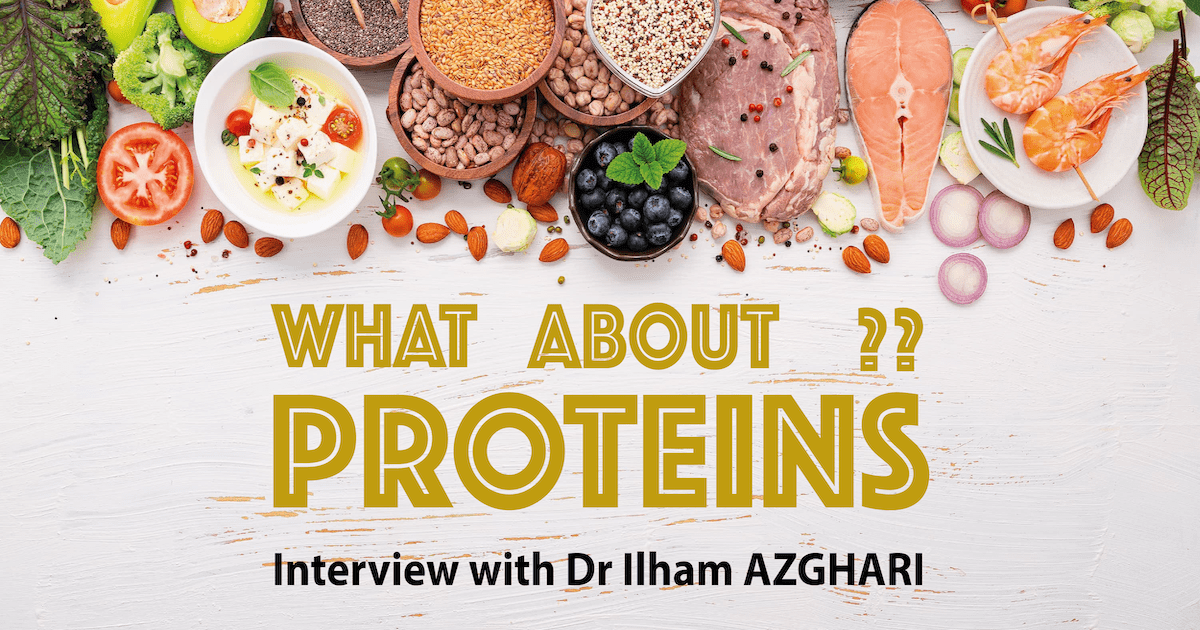
Disclaimer: Dr Ilham Azghari is in no way sponsored nor sponsoring any products, has no financial interest, nor does she promotes any specific diet. Dr. Ilham Azghari shares her professional honest scientific opinion based on her studies, experience and ethics as a medical professional.

I am Dr Ilham Azghari, specialist in hepato-gastroenterology and medical nutrition, I practice my profession in my specialized medical office practice in Rabat (Hay Riad), I was trained at the Faculties of Medicine of Rabat and Amiens with an additional diploma in medical nutrition given my passion and interest in the subject and the close link with gastroenterology.
Dr Ilham Azghari,Hépato-gastroentérologue, Cabinet de gastroentérologie, nutrition médicale et proctologie Angle Av Annakhil et rue Arrayhane, rés. Les Palmiers2, N 4, Hay Riad, Rabat. Tel: 0537564064 Email: drazghari.gastro@gmail.com
- What are proteins? What is their function in the body?
- Protein dietary sources
- Protein recommended daily allowance
- Complete proteins ?
- Essential amino acids allowance on a vegan diet
- Correlation between feeling satiated and enough protein intake
- Protein deficiency and excessif protein intake
- Protein powder
- Animal protein vs plant based protein
- To summarise
What are proteins? What is their function in the body?
Dr Ilham Azghari: proteins are molecules composed of many amino acids linked together, so they are macromolecules and macronutrients. They play a role in the structure of body cells and tissues, and in the functions of the different systems of our metabolism.
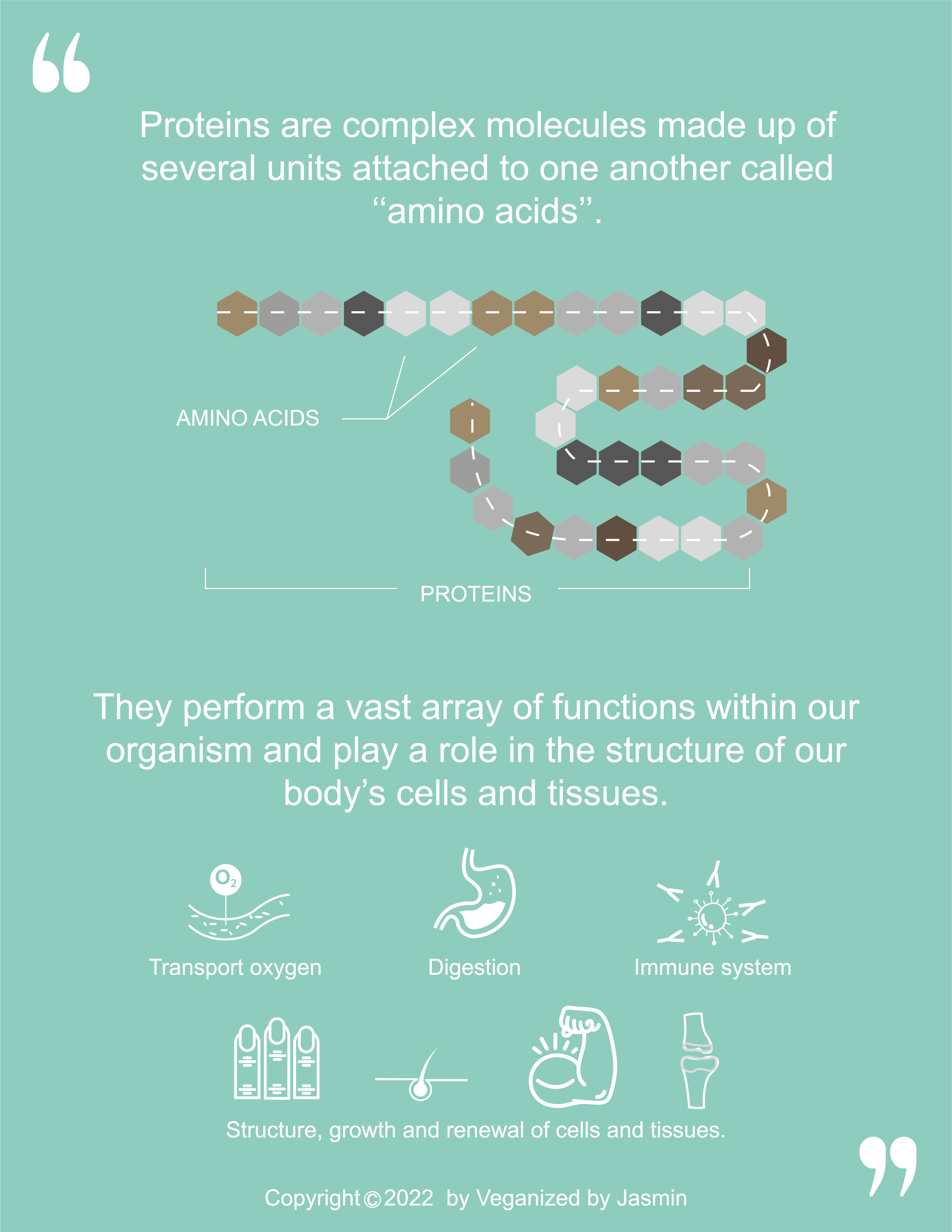
What are the dietary sources of protein?
Dr Ilham Azghari: Proteins are present in both animal-based food source (meat, milk, fish, eggs, etc.) and plants based source (legumes, grains, nuts and seeds, rice, etc.). You should know that some of the amino acids contained in proteins are essential, which mean they’er not synthesised by the body and must therefore be provided by food, and to ensure this intake, the choice of protein sources; particularly plant based one; must be varied.
What is the recommended daily allowance of proteins ?
Dr Ilham Azghari: According to ANSES France (National Agency for Food, Environmental and Occupational Health Safety), the recommended daily intake is 0.8 to 2.2 g/kg/d. It therefore varies according to the a persons weight. There are other needs variation to consider: age (growth, elderly) or physiological situations (pregnancy, breastfeeding, high-level sport, etc.).
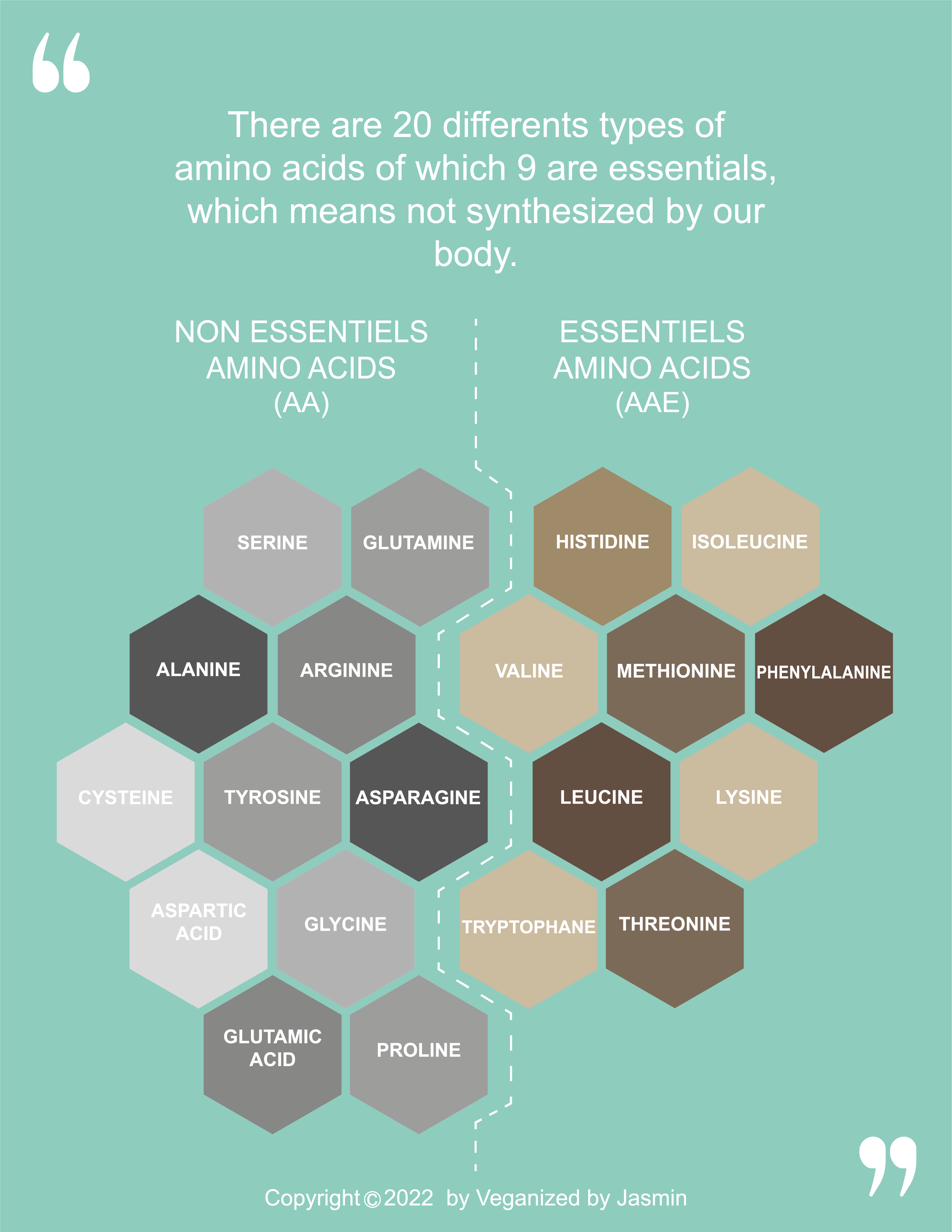
I often hear the term “complete protein” to describe a food or a meal. Would you explain to us what is meant by complete proteins?
Dr Ilham Azghari: A dietary intake of a complete proteins implies that proteins provide all types of amino acids, including the essential ones, which are not synthesised by the body.
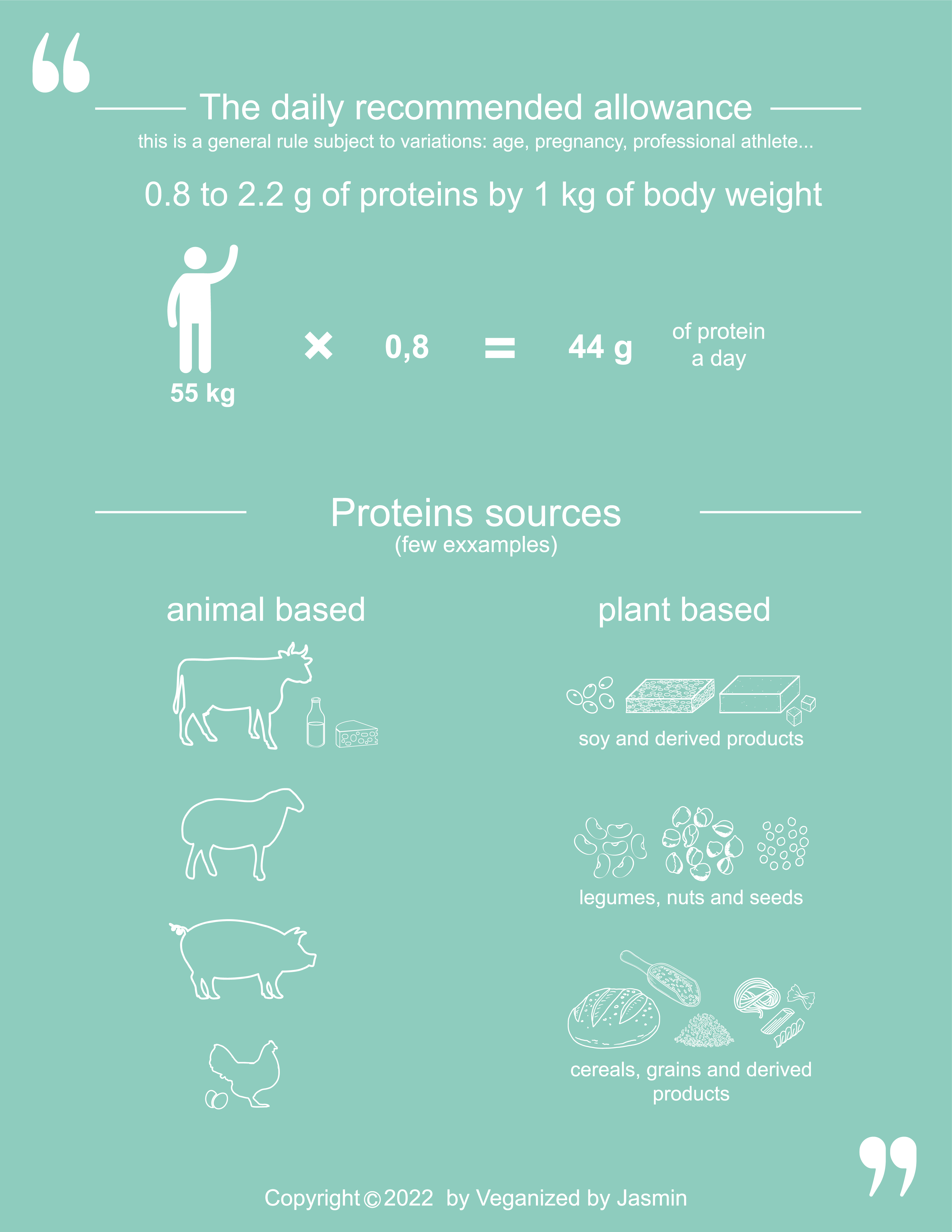
Is it possible to ensure your daily recommended dose of essential amino acids on a vegan diet? How to ? According to my research, it suffice to combine certain food groups in the same meal: seeds and legumes (lentils + wholemeal bread) for example, or even nuts and cereals (oats and peanuts).
Dr Ilham Azghari: Indeed, to get a balanced intake of proteins on a plant based diet, it is mandatory to vary the proteins food sources, such as legumes, nuts and seeds, cereals and rice. A single plant based protein source or an insufficient amount of a plant based protein source, contains only some of the amino acids.
Dr Ilham AZGHARI, is there a correlation between feeling of satiety and proteins?
Dr Ilham Azghari: Foods rich in protein – once in the stomach- are responsible for the feeling of satiety due to the effect of protein on gastric secretion and emptying. So yes, there is a direct correlation.
Is a protein deficiency possible? If so what are the causes?
Dr Ilham Azghari: Yes, protein deficiencies do exist. They can be isolated or associated with an overall energy deficiency that concerns all nutrients. The deficiency can be acute following a pathological situation that causes undernutrition (severe infectious, cancer, etc.), or chronic, following a long-term lack of intake (famine, severe anorexia, etc.).
So protein deficiency; whether being on a vegan diet or not; is not that common?
Dr Ilham Azghari: Indeed, this deficiency is not one of the most frequent deficiencies. However, It’s still far from exceptional.
Is it possible to over consume proteins and what are the consequences?
Dr Ilham Azghari: Yes it is possible, the ingestion of too large quantities of protein requires an additional effort from the metabolism, which can in this case be exceeded. Particulary the liver and kidneys.
Dr Ilham why do bodybuilders/athletes resort to proteins powder ? Are there any harmful consequences on the body after long-term use?
Dr Ilham Azghari: As we explained before, proteins perform a structuring role, as in the construction of tissues, and muscle tissues are one of them. It’s based on that concept that some athletes may have recourse to an additional protein intake along side their diet. This has not been shown to have any advantage over a naturally protein rich diet. Nonetheless, both intake methods must be followed under medical supervision to avoid a deleterious intake on the body functions.
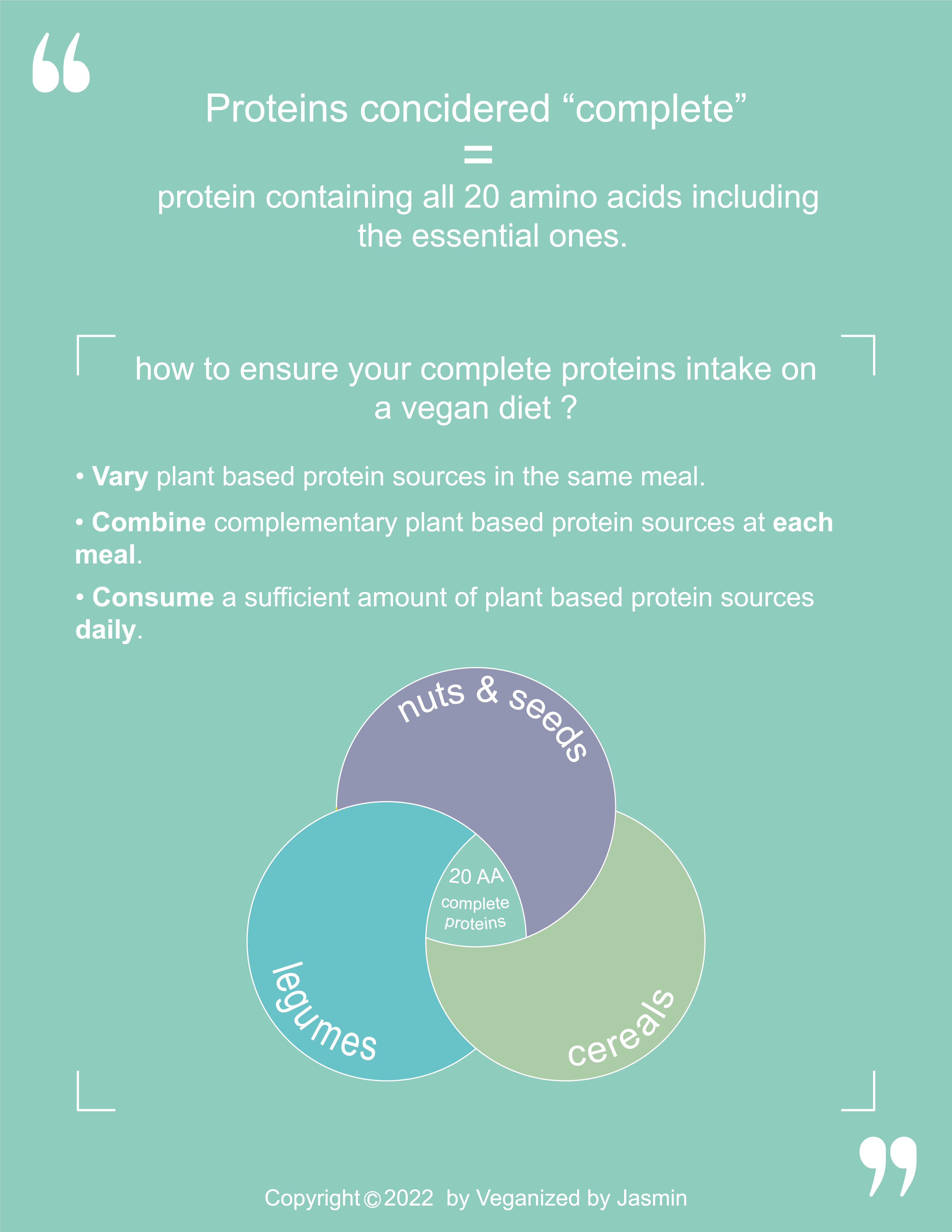
People often nag at me about ”animal proteins are better than plant based proteins”. I beg of you to end this debate once and for all, Your professional opinion on this matter.
Dr Ilham Azghari: We cannot say in a totalitarian way that proteins of animal origin are better. But what we do know is that they have better bioavailability and they contain amino acids in a more varied way. But that does not mean that a quality protein intake can only be ensured through food products of animal origin.
So to recap Dr Ilham, and if I got this right: consuming animal products ensures a more varied and abundant supply of amino acids (including essential amino acids) and thus the recommended daily intake of proteins without varying the sources. Moreover, we can also ensure the sufficient allowance of essential amino acids on a plant based diet. However it is necessary to take care to combine and vary the plant based protein sources – as you mentioned above – as well as consume a sufficient amount of it. Since almost all plant based protein sources lack 1 or more essential amino acids (EAAs), pairing 2 or more varieties in one meal is key here. For example, combine lentils and wholemeal bread, or vegetable couscous with chickpeas, quinoa and peas.
Dr. Ilham Azghari: Yes absolutely.
Dr Ilham as usual it was a brief but an instructive exchange. Thank you for your time and I’ll see you soon for our next interview: All about vitamin B12.

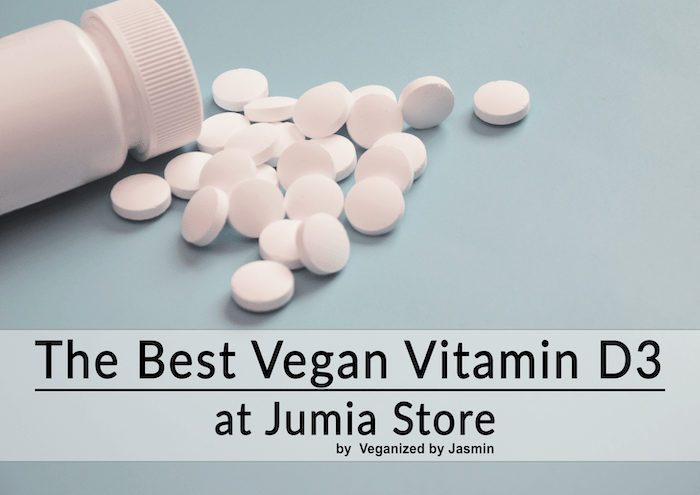
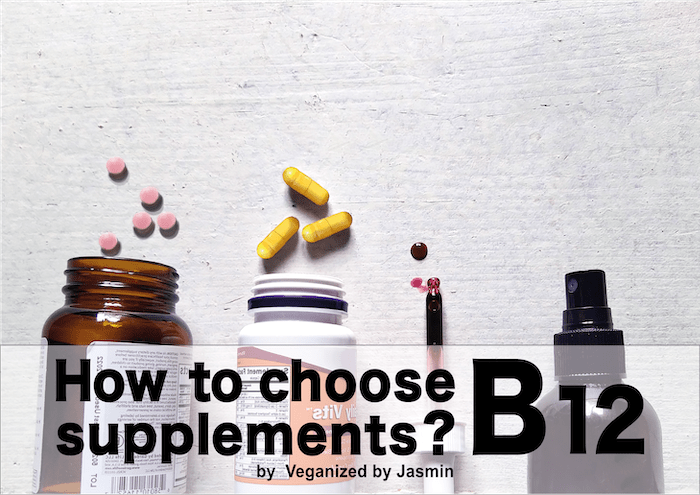
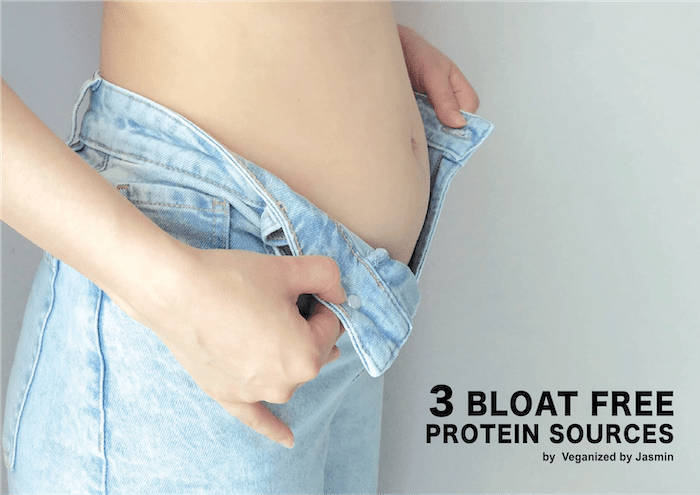
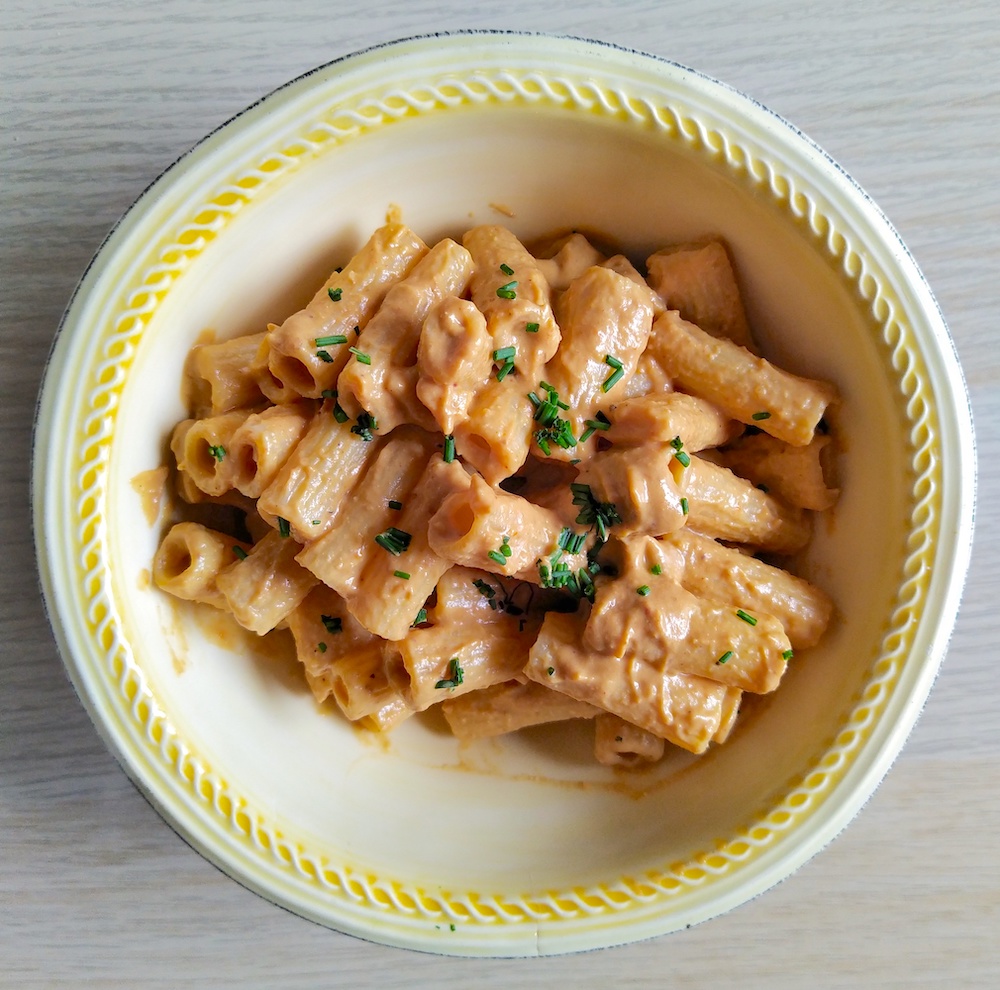


Great content